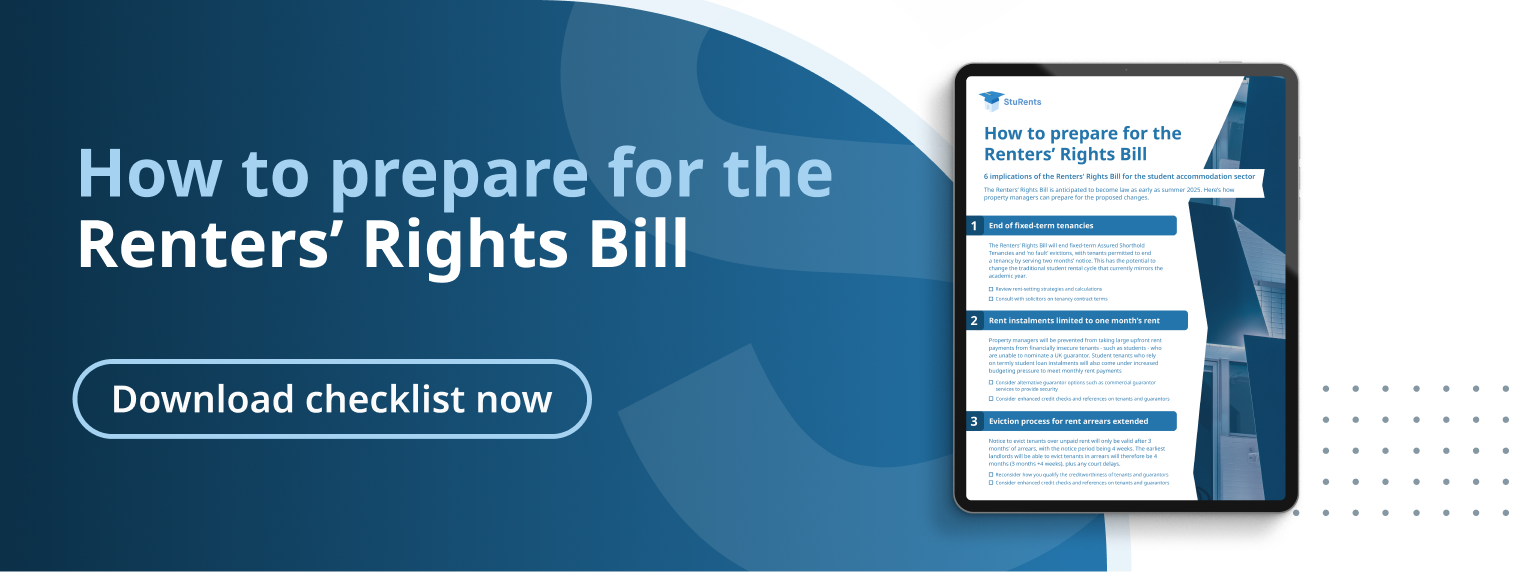
Renters’ Rights Bill vs Renters (Reform) Bill

Image courtesy of Adobe
The first draft of the Renters’ Rights Bill was introduced to Parliament by Labour in September. This Bill is Labour’s response to the previous Conservative government’s Renters (Reform) Bill which did not pass into law before Parliament dissolved in preparation for the general election.
While there are similarities between the two pieces of legislation, Labour’s Renters’ Rights Bill has made changes, introduced new clauses, and removed certain suggested amendments from the Conservative’s version of the Bill.
We break down the most significant differences between the new Renters’ Rights Bill and the Renters (Reform) Bill and what this could mean for landlords and property managers.
What’s different in the Renters’ Rights Bill?
The Renters’ Rights Bill includes many provisions that were suggested in the Renters (Reform) Bill but with significant amendments or changes.
Longer notice periods for landlords using Section 8
The Renters’ Rights Bill intends to introduce longer notice periods for some Section 8 grounds for repossession than those laid out in the Renters (Reform) Bill. The Renters’ Rights Bill has extended the notice period suggested in the Renters (Reform Bill) from two months to four months for the following Grounds:
- Ground 1 (occupation by landlord or family)
- Ground 1A (sale of property)
- Ground 4A (occupation of student HMOs by full-time students)
- Ground 6 (redevelopment by landlord)
Ground 1A cannot be issued until 12 months into tenancy
The Renters (Reform) Bill introduced a new Mandatory Ground 1A which allows landlords to obtain possession of their property where they intend to sell or live in it. This is also included in the Renters’ Rights Bill.
However, under the Renters’ Rights Bill, notice can only be served a minimum of 12 months into the tenancy, rather than six months as laid out in the Renters (Reform) Bill. Landlords also won’t be able to re-market or re-let the property for 12 months from the date the notice is served until the date the notice expires. If landlords are found breaking these rules, they could be fined up to £7,000.
Ground 8 extended
The Renters’ Rights Bill will extend the grace period for rent arrears before a Ground 8 notice can be served from two months to three months. The Ground 8 notice is itself a four week period leading to eviction, meaning landlords could face four months of rent arrears before eviction is effective.
Longer notice period for Section 13 rent increase
Currently, landlords can increase rent by using a Section 13 notice on Form 4 and providing at least one month’s notice to start at the beginning of a new rent period. The Renters’ Rights Bill will increase this notice period from one month to two months. Tenants will be able to challenge rent increases in the First-Tier Tribunal if they feel it is above market rates.
Shorter time limits for landlords to improve pets
The Renters (Reform) Bill allowed landlords 42 days to consider requests for consent to keep pets. This has been reduced to 28 days in the Renters’ Rights Bill. The proposed Bill states that landlords must consider all requests to keep pets in rental properties and cannot unreasonably refuse. However, they will be able to request that tenants take out insurance to cover any potential damages from pets.
What’s new in the Renters’ Rights Bill?
The Renters’ Rights Bill includes many provisions that were not included in the Renters (Reform) Bill. Here’s a breakdown of what’s been introduced by Labour’s Renters’ Rights Bill.
Ban on bidding wars
When the Renters’ Rights Bill is passed, landlords and property managers will be required to advertise their asking rent and will not be allowed to accept offers above this threshold. This is intended to prevent bidding wars which drive up the prices of rental properties.
Awaab’s Law extended to the private rented sector
Awaab’s Law currently requires social housing providers to remedy hazards such as damp and mould within particular time frames. The Renters’ Rights Bill intends to extend this law to the private rented sector to ensure that all homes are safe and hazard-free.
Additional offences for Rent Repayment Orders
The Renters’ Rights Bill will add additional offences to the list in the Section 40 Housing and Planning Act 2016, which allows the First-tier Tribunal to impose a Rent Repayment Order to landlords. These extra offences include:
- Knowingly or recklessly misusing a possession ground
- Breach of restriction on letting or marketing a property
- Tenancy reform: continuing breaches
What’s missing from the Renters’ Rights Bill?
The Renters’ Rights Bill has omitted several provisions suggested in the Renters (Reform) Bill.
No court improvement required before abolishing Section 21
Both the Renters (Reform) Bill and the Renters’ Rights Bill outlined plans to abolish section 21. However, the Renters (Reform) Bill only planned to abolish section 21 once ‘sufficient progress has been made to improve the courts’. By contrast, the Labour Manifesto promised to ‘immediately abolish Section 21 “no fault” evictions’ without requiring the courts to be reformed first.
No minimum six month tenancy for tenants
At the Report Stage, there was an amendment to the Renters (Reform) Bill which stated that tenants needed to wait 4 months before serving their two months’ notice. This created a minimum tenancy period of 6 months for tenants. The Renters’ Rights Bill allows tenants to serve notice to quit immediately, removing minimum tenancy periods.
Are you prepared for the Renters’ Rights Bill?
Labour’s Renters’ Rights Bill is sure to bring significant changes to the private rented sector. Download our checklist today to ensure you’re prepared for the new legislation and how it might affect your current and future tenancies.
Share


